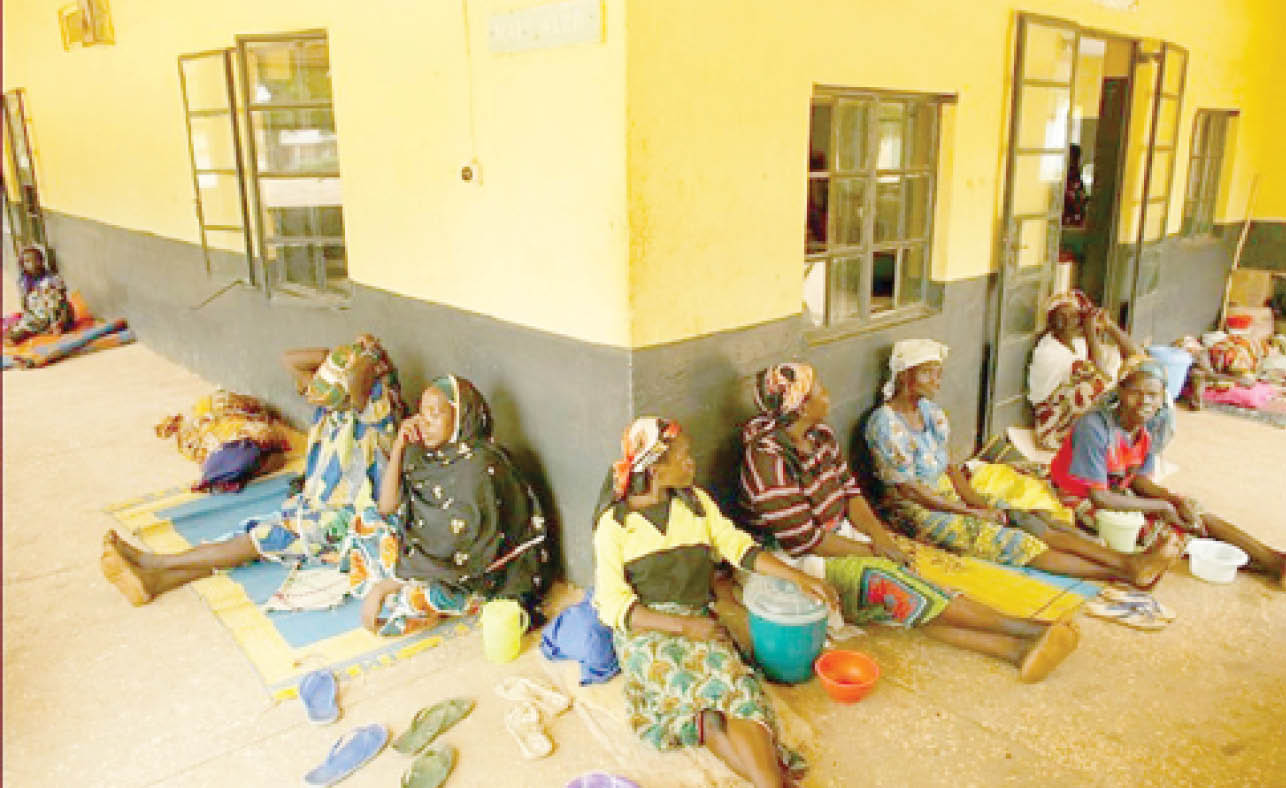Poor primary healthcare fueling maternal, child deaths – FG
The Special Adviser to the President on Health, Dr Salma Anas-Ibrahim says the poorly functional Primary Health Care (PHC) system remains a major contributor to maternal and child deaths in the country. She stated this at the weekend during the 7th Annual Conference of the Association of Nigeria Health Journalists (ANHEJ) in Akwanga, Nasarawa State. […]

Patients in front of a primary healthcare centre
The Special Adviser to the President on Health, Dr Salma Anas-Ibrahim says the poorly functional Primary Health Care (PHC) system remains a major contributor to maternal and child deaths in the country.
She stated this at the weekend during the 7th Annual Conference of the Association of Nigeria Health Journalists (ANHEJ) in Akwanga, Nasarawa State. It was themed ‘Health Security: Nigeria’s Efforts to Achieve Universal Health Coverage’
She said in Nigeria the PHC level of care has received the least attention and continues to add to the burden of morbidity and mortality, especially due to pregnancy-related conditions making it the weakest link of the health service delivery system.
She said other challenges to reducing maternal and child deaths are issues of low healthcare coverage for life-saving interventions, ill-equipped and weak service delivery systems, low coverage with community and household-level interventions; gaps in the Reproductive, Maternal, Newborn, Child, Adolescent Health and Nutrition- RMNCAH+N continuum of care, among others.
- NIGERIA DAILY: How To Write The Perfect Undergraduate Project
- Plateau APC chieftains jostle for Lalong’s ministerial post
Dr Anas said the Universal Health Coverage ( UHC) 2030 Action Agenda has rightfully recognised the interlink between achieving UHC and health security as critical for having an efficient and resilient health system, which should be based on a resilient primary health care system as an integral foundation.
President of ANHEJ, Joseph Kadiri, said the allocation of N1.33 trillion representing five per cent of the 2024 proposed budget is abysmally low concerning the ‘Abuja Declaration’, which stipulates the allocation of 15 per cent of the country’s annual budget to the health sector.
He called on the government to remain steadfast in reversing medical tourism and brain drain in the health sector; and to also address gaps in delivering quality services for family planning, cancer, and other non-communicable diseases.
The Director-General of the National Agency for Food and Drug Administration and Control (NAFDAC), Prof. Mojisola Adeyeye, who was represented by Nantim Dadi, a Special Adviser in the agency, said that ANHEJ plays a vital role in educating, empowering, and advocating for public health.
